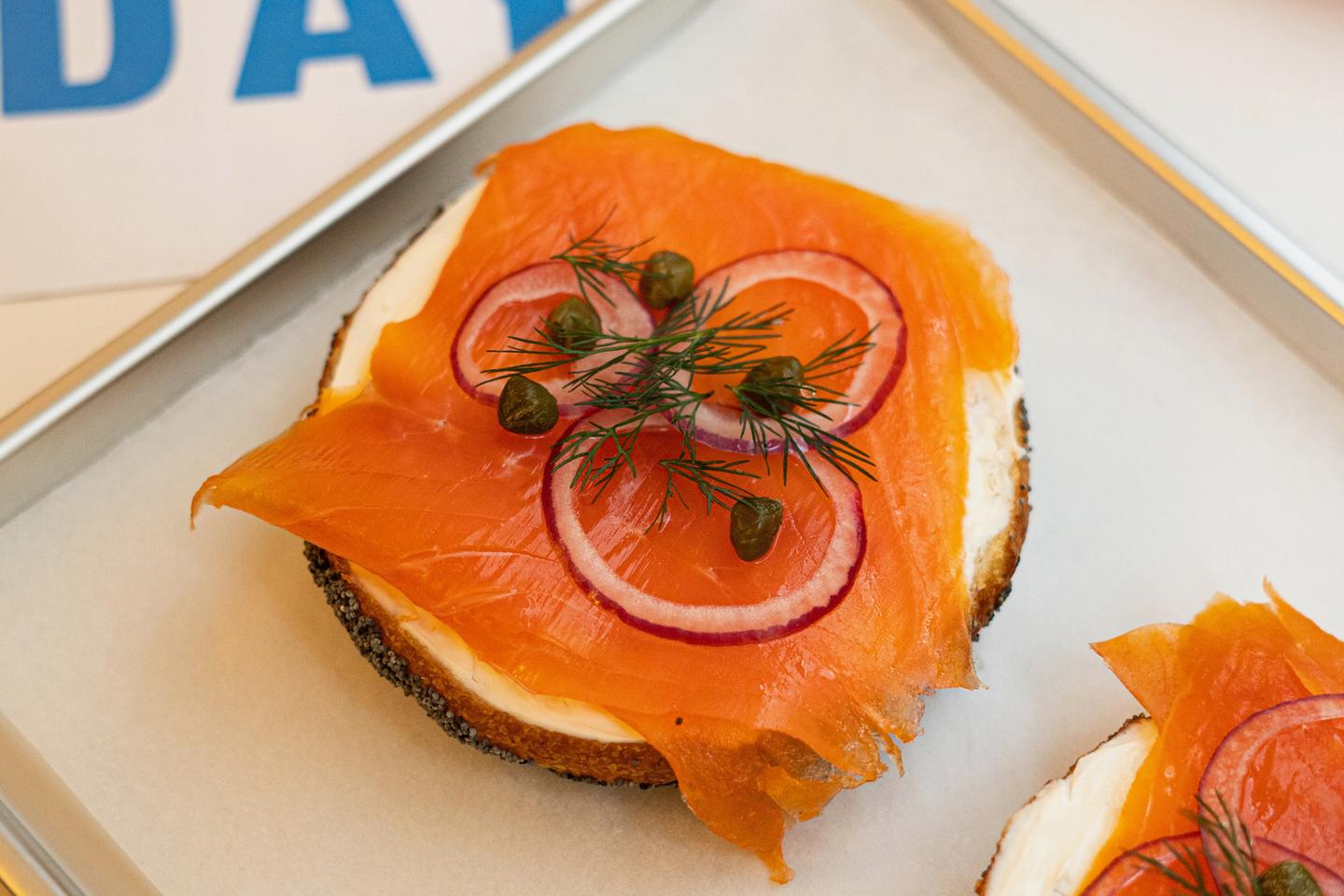


"Where to buy real bagels in Paris?" On forums, the verdict from New Yorkers expatriated in the French capital is unequivocal: There are none, period. This, despite the wave of holey breads that swept through the capital a decade ago, led by chains and often deemed "too brioche-like" by internet users. The excellent news? The bagel has been arriving in an artisanal version for a few months, much closer to the Manhattan original.
Introduced in the late 19th century by Jewish immigrants from Poland, as recounted by Maria Balinska in The Bagel: The Surprising History of a Modest Bread (Yale University Press, 2008), the bagel is to New York what the baguette is to Paris: an emblem. A small bread item with a soft interior without being too doughy, almost difficult to bite into, it evolved from a popular snack in Jewish communities to a breakfast star in the 1960s. It's typically spread with cream cheese or peanut butter and filled with smoked salmon.
No, bagels are no longer hand-rolled into ropes or baked on burlap-covered boards as in the past, but the artisanal recipe remains significantly the same. The ring, made from natural sourdough, is briefly plunged into boiling water – which, by gelatinizing the surface starch, creates its shiny crust – before being baked. It seems simple, but the type of flour, resting time and enzymes used must be adapted to the local humidity and temperature for perfect consistency.
Le Monde tested out a slew of Parisian addresses, both old and new. We tasted both a plain bagel and another, filled like a sandwich. And, if we sometimes felt the urge to cast upon some mediocre shops the old Yiddish curse "May you lie on the ground and bake bagels!" – promising them an eternity in hell, a reference to the terrible working conditions until the mid-20th century in New York bakeries, where cellars were full of ashes due to coal-fired ovens – we can affirm that excellent bagels now exist in Paris.
You have 72.74% of this article left to read. The rest is for subscribers only.
